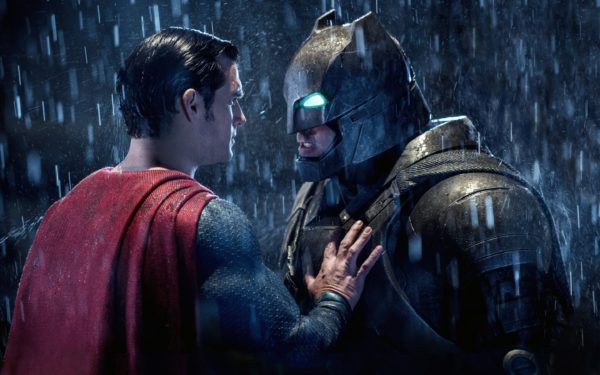Anghus Houvouras on the faulty logic of “you’re not the intended audience”…
In nearly two decades of writing about movies, the motivating factor has always been the joy of discussing film with others. Whether that cinematic discussion was happening at a bar after the movie, a chat room or the toxic bowels of social media, the water-cooler conversation aspect of entertainment has always been a highly motivating factor.
In recent years, the conversation has changed. Not so much the content but the complexion. It’s a maddening mix of hyperbolic highs and vitriolic verbiage that often ends up becoming a messy, infantile mosh pit of malevolence.
Let’s take, for example Star Wars: The Last Jedi. Easily the most divisive movie of the 21st century. It’s been said that there’s a thin line between love and hate. Rian Johnson’s turbulent entry into the Star Wars universe is a fantastic example of how a simple cinematic discussion can turn into a nightmare of political correctness and epic entitlement.
Movie discussions used to be binary. That pass/fail mentality that Siskel and Ebert mad famous with their thumbs. A movie was deemed ‘good’ or ‘bad’. You debated the merits of the movie and passionately defended your position. Since art is a subjective medium, there wasn’t a winner or a loser. Just people who love movies having respectful debates about what constitutes a good movie.
High holy hell how times have changed. Discussing movies in the era of social media is like jumping into a dumpster fire doused in gasoline. A place where even the most well thought out analysis can be invalidated or refuted. Where film fans take on a strangely polarized tone and defend movies & filmmakers with the intensity of a political candidate or their favorite football team.
There are people out there who actively promote the idea that the DC Extended Universe movies are somehow superior to Marvel movies. Sure, it’s a matter of taste. There technically is no right answer. But even the most ardent Zack Snyder defender (myself included) can admit the Marvel Cinematic Universe is putting out superior product. I like the Ultimate cut of Batman v Superman: Dawn of Justice. It’s an interesting movie, but it’s emotionally obtuse train wreck that I happen to find engaging. The theatrical cut is an absolute nightmare of nonsense. Even though I like the movie, warts and all, i’m objective enough to understand that there are inherent flaws. I’d be stupid to make broad declarations like ‘DC is better than Marvel’. This is the kind of logic employed by children when debating topics like ‘Who would win in a fight; Batman or Captain America?’ or ‘Who’s cuter; Justin Bieber or Harry Styles?’
Over the years I’ve noticed the growing trend of attacking the critic. Instead of trying to address points made in a criticism, people on the other side of the argument try to invalidate the credentials of the critic. Why bother actually formulating a counterpoint when you can just call them irrelevant or an idiot?
Lately I’ve noticed a growing trend of trying to invalidate criticism by using the phrase “You’re not the intended audience”. It’s popping up with more and more frequency. I remember hearing this when I was eviscerating the awful 2016 Ghostbusters movie. After spending a few thousand words breaking down my opinion, I was told “You’re not the intended audience for this movie”. The reason: because I was a man. I’m not? Are you trying to tell me a $150 million summer blockbuster financed by Sony wasn’t intended for anyone with a penis?
The Last Jedi was a similar kind of experience. Disliking the film was meant with nonsense like ‘subverting your expectations’ or accusing detractors of being racist, sexist or any other label that could help negate your criticism. Rose Tico wasn’t a poorly written or developed character… you were just a racist/sexist who doesn’t like Kelly Marie Tran and Disney’s attempts at bringing diversity to a galaxy far, far away.
It’s a garbage argument made by people who don’t want to extend the mental effort required to make a counterpoint. It also makes for very boring cinematic conversations. I’ve written a half dozen columns about The Last Jedi in an effort to more clearly explain my opinions. To have that met with “Well, that’s probably because you’re a racist” is both hilarious and harrowing.
The ‘intended audience’ argument feels particularly infuriating because it implies that there is a lack of understanding or a disconnect. It’s the next iteration of ‘you didn’t get it’. You’re being told ‘you didn’t get it, and you weren’t supposed to’. What an inane and ridiculous concept. Especially when applied to movies like Ghostbusters or The Last Jedi.
I was thinking about this argument while watching Bo Burnham’s excellent Eighth Grade. A movie that does a fantastic job of putting the viewer in the shoes of an awkward eighth-grader dealing with a gauntlet of identity issues. The movie has been praised by critics and audiences. Though I could see it as a film that someone would use the ‘intended audience’ argument to defend against detractors. Bo Burnham made a very engaging movie about the life of a 12 year old girl and did it in a way that speaks to everyone. The ‘intended audience’ was the general ticket-buying public. You didn’t need to be a teenager or a woman to understand what the main character was going through.
I reject the idea of the ‘intended audience’ argument. It’s a fallacy. A weak counterpoint used by people too lazy or too dumb to develop an intelligent perspective. Are action movies only made for guys? Is the ‘intended audience’ of a Romantic Comedy just women? Was Crazy Rich Asians just made for Asians? Are Kevin Smith movies only for middle-aged fanboy stoners who enjoy watching terribly made garbage? There’s a fundamental difference between the concept of ‘niche’ and making faulty, inaccessible trash.
So please, do not tell me that the reason I didn’t care for a movie was that I’m not ‘the intended audience’, especially when making studio movies engineered to make a profit.
Anghus Houvouras













